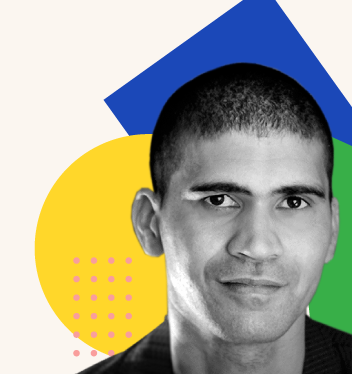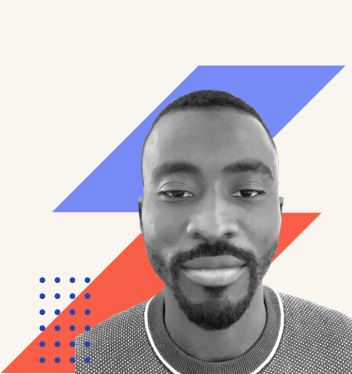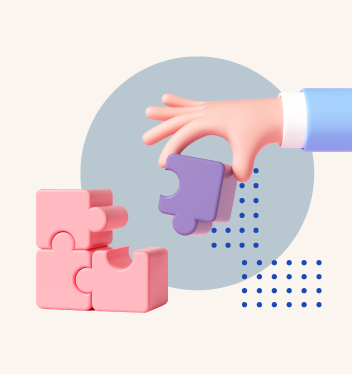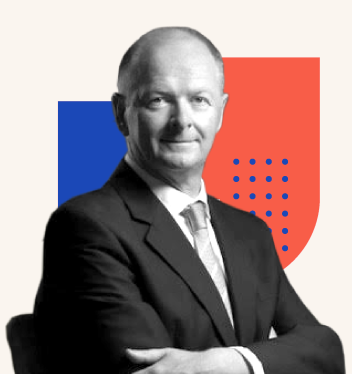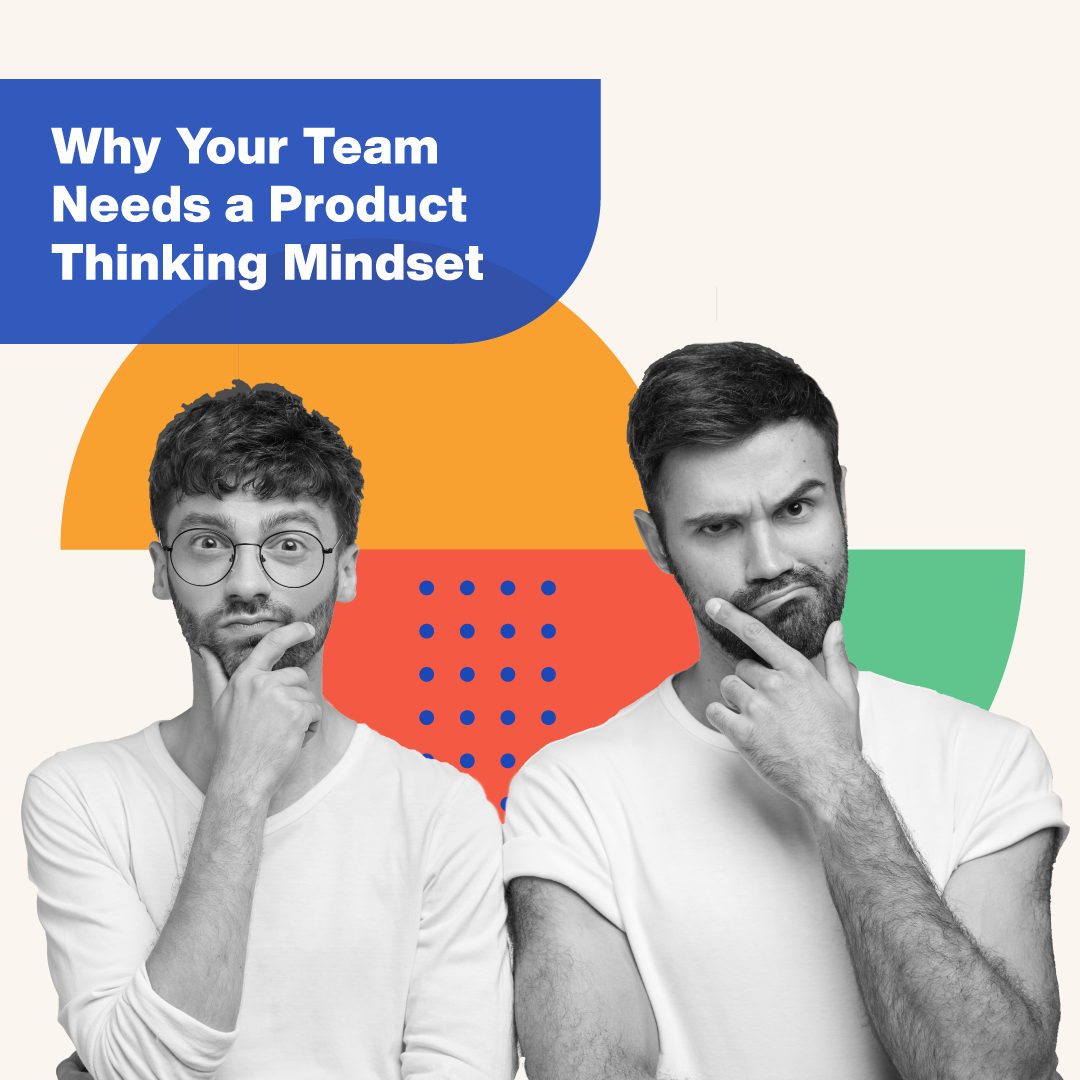RLabs is a social enterprise and innovation hub that provides educational programmes, technology, and entrepreneurial support to community members in economically challenged areas across South Africa. More than 800,000 community members have directly accessed the RLabs skills training and economic empowerment programmes.
How did your journey with R Labs start, Marlon?
What I started doing was never really supposed to be an organisation – there was no business plan, no feasibility study! It was really just born from this innate need. I thought if young people could use the power of the internet, they might be able to share their stories of hope and bring about change and transformation. If someone from the community could hear their story, they might think: “If that person can do it, I can do it.”
It all started with one person thirteen years ago. I thought I was teaching one person in my community computer classes – this was not the case! This person was under the impression that I was offering free computer classes, so he invited all his friends to come along. He was also an ex-gang member and ex-drug dealer, and so it happened that our first cohort of people was a total group of misfits, as some people would call them!
These students had the most colourful past. And even though they had terrible resumes, they had very impressive criminal records, which gave them skills that were just unparalleled! For example, we had a guy on the most wanted list for organised crime: he understood logistics so well. The other guy was a notorious gang leader, so he understood how to do viral marketing because of his experience recruiting people into a gang! So, we suddenly found ourselves with this incredible group of people who had learned some incredible skills outside of the traditional educational system.
We ended up running what we now call R Labs Academy, which today provides underserved community members with a range of digital, business, and innovation skills. And what started with that one person all those years ago will have turned into a million people taking part in our learning programmes in some shape or form.
What does R Labs do today?
The main aim of RLabs is to create spaces where people can be impacted, empowered, and transformed through HOPE, technology and innovation, training, and economic opportunities. We believe education is key to bringing about the eradication of poverty.
R Labs is about equipping and building capacity in someone that gives that person hope. And once we’ve done that, figure out how to leverage that capacity to create something meaningful, such as a livelihood, a better job, or starting self-employment. Our training ranges from basic computing stuff, basic entrepreneurship, small business management courses, and so forth, right up to coding, UI/UX, and some data analytics.
We believe education is key to bringing about the eradication of poverty. A big portion of our population comes from South African townships, rural towns, and other underrepresented and underserved communities. One in three young people is unemployed in this country. It’s dangerous to have that many young people who have lost hope – our goal is to make hope contagious.
Why is ‘hope’ such an important part of your mission?
My personal story started growing up in what we would call the urban poor and finding hope. For me, hope means having a certainty today and an expectation tomorrow.
Hope has always been a catalyst in my personal journey, which started with my mom deciding to give birth to me. She was told to abort me as a young teenage girl because I was a ‘mistake’. Fortunately, she decided against that – she had hope – even though she didn’t know what to expect as a young girl. And so, even while I was in the womb, the word hope resonated with me.
Whenever I used to go to school, even though things were tough at home, I always believed that things could get better, and that is partly what brought me to the place where the R Labs journey started.
I remember meeting this little boy who grew up on my street. This kid was about eight years old and just walking around aimlessly. When I looked into his eyes, I could see that this was a young child who had lost hope at only eight. I thought to myself: “How is it possible that in the very place where I come from, the place that I call home, my community, some people have lost hope? How is it possible that we come from the people who have lost hope?”
This kid was looking for a job because his mom, unfortunately, was addicted to drugs, and his father was caught up with gangs and found himself in prison. Meeting him really stirred me. I was an academic in technology at the time, teaching people how to use computers and the power of the internet. So, soon after this, I decided to use what I know and asked myself: “Why don’t I just teach young people so that they could at least have a little bit of hope?”
I believe education isn’t the only reason you go to school. It’s about hope: by going and completing school, there is a possibility of opening up opportunities.
You speak about hope as a mindset. How do you show people there’s something bigger out there when they’re not able to see it at the moment?
We do things unconventionally. For example, in South Africa, many kids go to school because their parents tell them it’s the right thing to do, despite many of them being unemployed themselves. As a kid, things are tough. You get to school, the windows are broken, the benches are broken, and you’re crowded into a room. This school does not even begin to reflect the possibilities. And that’s just one of the challenges I’ve seen at schools in South Africa. Some of the prisons are prettier than some of the schools we have!
In some ways, life looks very similar in South African prisons and schools. You work to a time schedule, you must walk on the one side, and you can’t really ask questions unless you are told to ask questions. It’s an extraction of your identity, who you’re meant to be.
At R Labs, we decided that we couldn’t change the public education system and how uninspiring it is; it was just too big for us. We decided to focus on what we believe can begin to bring change. And so our number one priority wherever people are learning, whether it’s a physical or virtual community, is that it must reflect possibility. It must reflect hope.
The fact that you come from a very underserved community doesn’t mean the space you walk into should look like your community. When you walk in, we offer you cappuccinos and barista coffee, the kind that you would get at a Starbucks. We treat you as if we’ve waited all our lives for you to arrive.
We also always make a point of asking people: “What are your dreams? What are your aspirations?” I remember asking that question to a young man in his early twenties. And he started crying because no one had ever asked him that. Not once. Imagine walking this earth for twenty years, you’ve completed school, and not once does anybody take an interest in your aspirations and dreams.
What do you see happen in people who have a sense of possibility?
Our students often feel like imposters because they don’t have a positive reference. Then, suddenly, they say they can’t do coding because their maths is terrible. But that’s because they were told they were awful at mathematics. That doesn’t mean you can’t do basic coding or basic design.
If you go into a place and people say, “Oh my word, you are so funny.” And at the next place, the same thing happens – someone says you are so funny. Guess what! You’re going to start believing that about yourself. This is something we actively focus on at R Labs: reinforcing possibilities, by consistently teaching and showing people that their new skills lead them to opportunities.
Once people believe in possibilities, you see a whole kind of mindset shift. And that comes when other people are willing to believe in the things that even you don’t think are possible for you. Something happens when more people begin to reinforce that.
People must feel they have a place where they belong. When you believe you belong to something, you feel as if you’ve enlarged yourself. The worst thing that you could find is someone trying to go and pursue further education or learning feeling like an imposter; they feel they don’t belong.
What is an example of a project your cohorts work on?
When they start, we ask our students to go and do some research and find organisations in their community doing fantastic work. Organisations that make them feel ‘wow’! They don’t have to be prominent and well-known. Maybe it’s someone who runs a soup kitchen or feeding scheme, and the student feels the work they do is incredible.
So, our students do some research, take photos, do interviews and report back on all the amazing work that people are doing in their community. We then ask them to offer these organisations a ‘gift and tell them that R Labs wants to do a website for them for free. The students are extremely excited by this, and they come back saying: “these organisations are happy, they can’t wait!”
Now, remember that they’ve not learned or touched a line of code. But because they now have skin in the game, they are committed.
We’ve had hundreds of organisations getting websites in just the last couple of months. And it’s a very basic thing to do, but the fact is, they dealt with it from an initial engagement, built it themselves, and then showcased and presented it to these organisations. By the time they reach a level where they’ve completed whatever programme they’ve done, they’ve now got an amazing portfolio of work that they can showcase to potential clients.
This is learning by doing and is just one of the things we intentionally do by design.
How does R Labs think about systemic change in opening access to the tech industry?
The African continent is being flooded at the moment, with some of the big tech players grabbing good talent here for their businesses. But unfortunately, we lose our developers very quickly because they can get three, four, or five times the salary at Google, Amazon, or Facebook.
The other challenge that we face is when it comes to opportunities. Many of these companies are unwilling to take entry-level developers and create a pipeline. Instead, they want to take the cream of the crop, the top-tier group.
How can we make provision for entry-level developers to gain some paid work experience? I feel there’s a massive need to create industry-led entry-level opportunities for young people on the continent because that is where the shortage is. Unfortunately, many companies compete globally, so they are not willing to supply those opportunities. An entry-level really needs two years of working experience before they can really break into any decent chance. That’s the reality.
I feel you need to become intentional in creating a pipeline of young people that go through the entry-level stage at a company when they come in. But when they move out, they might be mid to senior depending on how quickly they learn.
Do your students get jobs or earn money once they have graduated?
At R Labs, we use our positioning to source clients for our students to work with, so they get paid while going through the course with us. We encourage and train our students to be digital entrepreneurs and tell them: “Get yourself into a place where you can earn $1 online (or through the power of technology). Once you’ve gone from zero dollars to one dollar, aim for two. Keep pushing from there and grow surely but steadily.”
Many of our students now run their own little digital agencies. Some start technical stuff, own start-ups, or build tech themselves. Little side hustles give people an opportunity to become self-employed. Of course, not all of them can simply run a business and have many people working for them. But they can make a living, even if it is just for themselves and their families.
Many of the groups that we work with have families that really need them to earn an income. The family depends on them to go and make some money, especially while they are living at home, often with younger siblings. They think of securing a job as the ultimate ‘thing’.
We’ve had young people who want to drop out of an R Labs programme because the family is putting pressure on them to find work. Many leave not because they have a job but because they are told they must go look for a job. And when you speak to these young people and ask them what kind of work they want, they say: “Any work. Any job.”
There’s no way you’ll find a job when you don’t know what you’re looking for. But that’s the kind of desperation that they have. That’s why the minute they can show themselves and their families that they are learning something, the family starts to see some possibilities.
How have you sustained your outlook, morale, and energy in the context of growing youth unemployment and a lack of policy support to create jobs?
Imagine if you’re cleaning a window, and as you’re cleaning a window, someone comes in, and they throw dirt against the window again and again while you keep cleaning it. After a while, you would become a bit demoralized – that is the feeling I had about three or four years ago. I felt that we still weren’t moving the needle despite doing so much right. So, that was a time I decided I didn’t want to have anything to do with talking to the media and different people about our successes.
But the difference with R Labs is that we operate on the ground. So we see, feel, experience, and touch what happens and what people go through daily. People would say: “Wow, you’ve created many opportunities for young people!” But on the other side, the unemployment seemed to just get worse. I was utterly gutted – I felt like I was struck down.
I didn’t take a sabbatical, but I decided to take some time just to reflect. And upon reflection, the same questions kept coming up: “what are we doing wrong? Why is the needle not moving?” I realized that whatever statistics I am seeing, or what the media is throwing at us, what I see or hear daily, shouldn’t deter us from what we are doing. It should instead be the fuel to think about our model differently.
It sounds like some of this reflection time resulted in a renewed commitment to the path you were already on but in an expanded way.
We’re at the stage now where we are not only building capacity in people, but we’re asking ourselves how we can create new industries. If we can create more industries and more market opportunities, then whoever comes to our training will find a place to use the skills they’ve learned and enter the job market and economy. We’ve done a couple of partnerships with Naspers. Now we’re collaborating with the Development Bank of South Africa and UNICEF.
What’s next on your mind for R Labs?
Africa will have the world’s largest workforce in the next fourteen years. We have one window to take accountability and responsibility for what type of workforce we want to have on this continent by then.
We have to do something at a systemic scale that helps the masses. We don’t want to exclude people because of where they come from. So, we are working to create a type of industry mechanism, albeit in a small way. We take about 250 to 300 people through this pipeline, but you need tens of thousands to be going through it.
We’ve set a goal to impact 2 billion people by 2030. I don’t have much time left.



